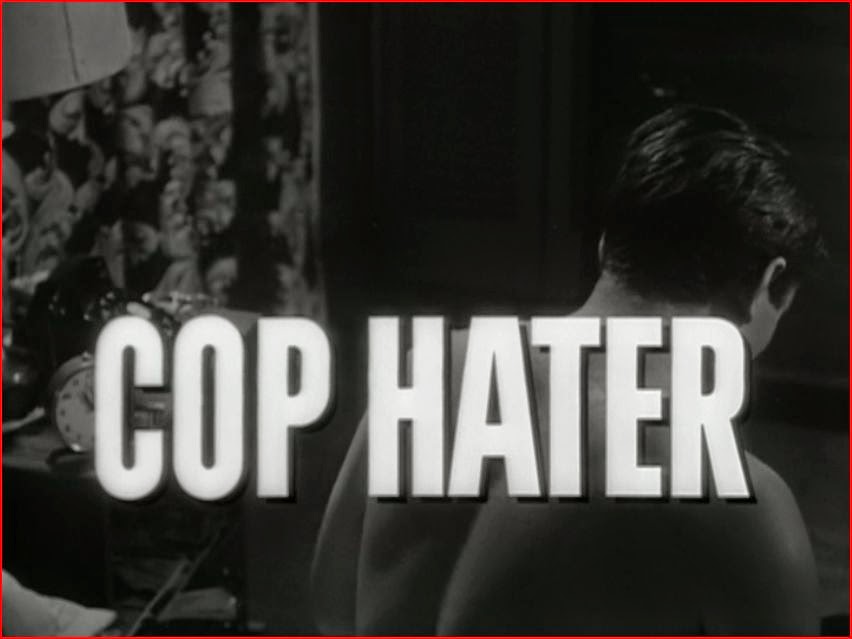


As you might have guessed, someone hates cops and is killing them. Three die in the course of the picture, including a token black officer. The 87th is challenged to find clues or figure out a pattern linking the murders. Meanwhile, Carelli (Robert Loggia) and Maguire (Gerald O'Laughlin) are on opposite personal trajectories. Maguire, something of a slob, seems to be losing his grip on his beautiful but bored wife Alice (Shirley Ballard) while Carelli is engaged to the magazine writer Teddy Franklin (Ellen Parker). Teddy seems like a sexist's dream woman: beautiful and intelligent in a way that doesn't impose upon you, since she happens to be deaf and mute -- a "dummy," as they said back then. We have to take the intelligence for granted since we don't see her at work and she communicates with her boyfriend not with American Sign Language but with pantomime signals the actress acquired, so the publicity tells us, through study with the deaf. See for yourself:


I can't help seeing a faint authoritarian streak in McBain ever since I read that he started a cop series because he decided private eyes shouldn't deal with murder cases. You might see that streak in the book and film's negative portrait of an irresponsible journalist who endangers Teddy by publicizing her relationship with Carelli after plying him with drinks to get a story about the murders. Cop Hater suffers as a procedural from this plot device, which resolves the mystery literally by bringing the killer to Carelli's, or rather Teddy's door. The procedural elements are most prominent in a scene where a forensics expert explains how one of the cop victims was able to get crucial clues about the killer simply by scratching him before dying. The final twist to the plot isn't exactly alien to the procedural, since the genre depends on a random assemblage of scattered puzzle pieces rather than a domino theory of ingenious deduction, but it also reinforces the noir feeling of the movie, which Berke conveys not in spite of but to some extent because of a certain poverty of style that effectively expresses a certain poverty of existence for low-income cops and frustrated wives in those primitive times before air conditioning was common. There's something authentically abject about the sight of O'Laughlin lounging in his underwear and swilling beer on a hot summer night. There's also an adequate amount of location work to establish the 87th's seedy milieu.


Along with the young Loggia, who makes a plausible Carell(i) and really deserved another crack at the role, you'll see a relatively young Vince Gardenia as a stoolie and a very young Jerry Orbach in his first credited role as a spokesman for the local youth gang. Ballard and Parker are attractive in their respectively forbidding and innocent fashions. But the film as a whole doesn't quite do McBain justice, and it's understandable that this first attempt at a film series didn't outlive William Berke, while the novels kept on coming, inspiring Akira Kurosawa (High and Low) and others to give them different degrees of cinematic life.
No comments:
Post a Comment